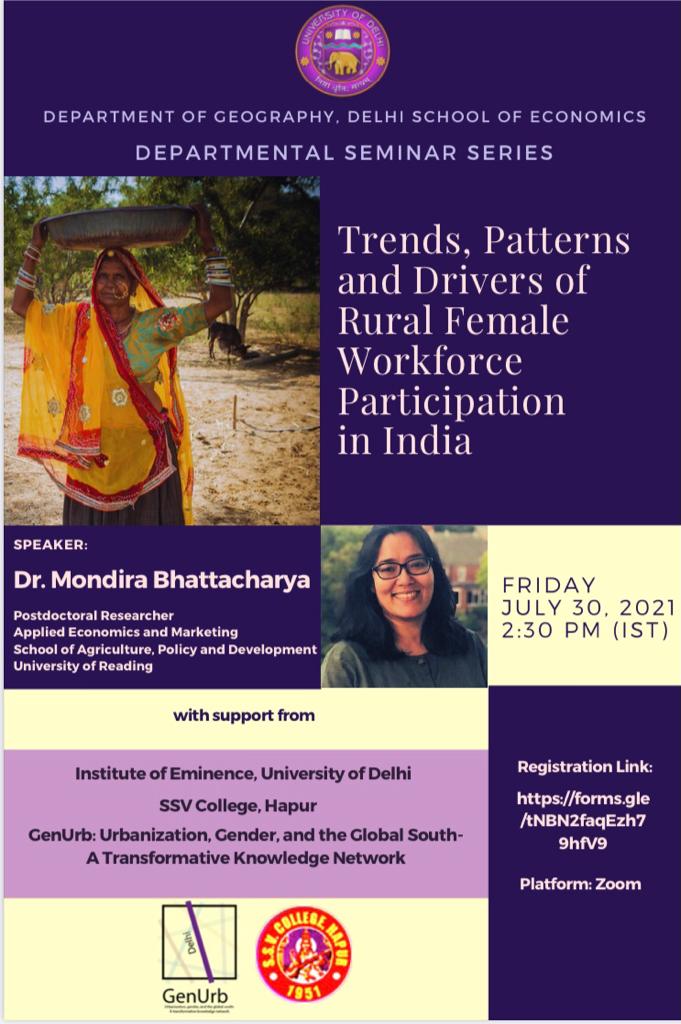Mondira gave a guest lecture to the Department of Geography at the Delhi School of Economics, India. She spoke about occupational structures of rural Indian women and the informality/precarity of their work. Her abstract is below:
The empowerment of women is critical for improving their status in society and, in turn, women’s access to economic and financial resources is vital for their empowerment. Despite a discernible improvement in India’s rural economy in recent years, the rural female workforce has been declining. The lecture, based on a paper published under the same title in 2017, but updated to include insights from the recent PLFS* data, delved into the reasons for the decline by seeking clues from migration patterns, social and religious factors, land rights, agricultural incomes, education and wages. The study found that despite benefits of the MGNREGS** programme and reduced disparities between male and female rural wages, female participation in paid employment in rural India has been declining because of lack of suitable and safe non-farm jobs, social norms restricting their entry in the job market, unequal land rights as well as some improvements in rural female education and skills development that is facilitating educated women to seek better non-farm jobs that are not available in rural areas. The study suggests that improving rural women’s access to land and productive resources, providing them decent work opportunities and prioritising their education and skills training along with multi-sectoral reforms such as improving rural transport and connectivity and provision of child care facilities such as creches in work sites will collectively help women to join the workforce and improve their socio-economic status.

